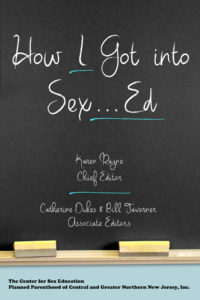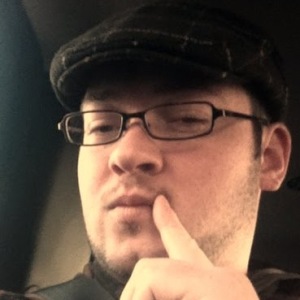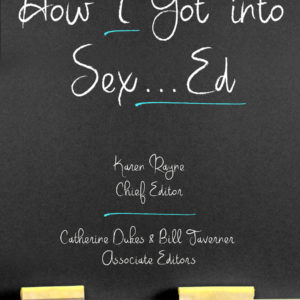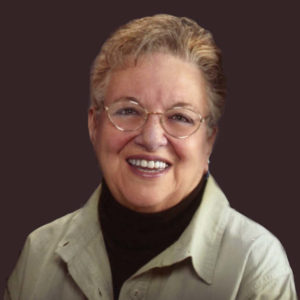We are running excerpts from How I Got Into Sex…Ed. Get a free copy of the ebook here. Order the print book here.
Jeffrey W. Anthony
How I Got Into Sex…Ed
Once upon a time, there was a boy who needed to know everything. And he thought he did. And then things happened, and he didn’t have the answers as to why.
I think we all realize that the boy I’m talking about is Harry Potter.
Okay. It’s me. But I do look like him.
From an early age, circa 3rd grade, I was labeled as “gay” without having any context of that meaning. Naturally, I felt shunned and different, and befriended the teachers, who were generally much kinder individuals. Not always.
Skip ahead a few years to high school, though keeping with the general concept of feeling like an outcast. We had health class. I grew up in Jersey, so we had a great program, right? Right….
My health ed teachers were not bad people; they were just phys ed teachers who had taken anatomy, so naturally they were assigned to teach sex ed. I can still remember my teacher blushing when saying the word “penis.” Naturally, because I was… am… a know-it-all, I knew anatomy inside and out (ha!), and so I ended up teaching a few lessons to my classmates.
But the real lesson I learned was fear. It wasn’t fear of STIs or pregnancy, but of dying alone.
We had a guest speaker who spoke of the late 80s with great fondness and remorse. I can still remember the sadness in his eyes. We’ll call him Jack. Jack survived “GRID”[i] and was living with AIDS. I remember hearing the pain in his voice. I remember that all the other students made sure to give him a clear and wide berth when leaving the classroom.
I gave him a hug. And I was shunned for several days or maybe weeks. I really have no idea know long it was, since being shunned was pretty much the norm for me.
I became afraid of dying alone. I was coming to terms with the fact that I was gay.
A little later in high school, I had my trust violated in a rather serious way, leaving me feeling all the more alone.
I buried my emotions, came out to friends, and learned everything I could, about anything that held my interest long enough. A productive coping mechanism, at least. I went to Rutgers University to become a genetic engineer, and then I took a Rutgers chemistry class…let’s just say that having a PhD in chemistry should be a prerequisite for that class. I floundered and ended up being academically expelled from Rutgers, which was both the greatest failure of my life and the best thing that ever happened to me. As part of the process of facilitating my return, I shifted my focus to public health.
My wandering mind seized on the topic. I found public health to be absolutely fascinating and amazing. I took every class I could as a nonmatriculated public health major. Then I took Health Program Evaluation, followed by yet another health-related class. Finally, I found myself in Sexual Health Advocacy. That was a jump into my own reflecting pool, and I didn’t like what I saw.
Among other things, I had to confront my emotional repression and protective barriers. I was clinically depressed. My personal growth and healing had stagnated. (Well, it had actually never really happened.)
That summer I went to a retreat for peer educators. It was like a demolition crew brought down all my industrial-strength walls. It made me ripe to learn, grow, and heal.
Then I took Health and Social Justice with Dr. Francesca Maresca, who had been my professor for all the previously mentioned public health classes. That was my best and worst class. That’s where I learned about my privilege — what my white cis-gendered male identity affords me — both in spite of my own suffering and in the context of my suffering. All the lessons learned were hard ones. I experienced cognitive dissonance over and over again. It’s hard to make the distinction between hearing “you are not persecuted because of your identity” and “your experiences don’t matter because of your identity”; the latter, of course, is not the point of understanding privilege.
However, learning from Francesca and her colleague Liz Amaya-Fernandez, I was able to put myself in an environment of support, growth, and, most importantly, healing.
So, given this long preamble and backstory, how did I get into sex ed? In taking the sexual health advocacy class, I was trained to be a peer educator. I was trained to go into residence halls and to Greek Life organizations and provide sexuality programs. It was always so much fun listening to the questions. I also trained to be part of the educational theater peer education group, greatly expanding how I taught sex education.
During the remainder of my undergraduate career at Rutgers, I pursued my Health Education Certificate, and eventually I will become a Certified Health Education Specialist.
Working with Liz, I had the opportunity to volunteer with the CFLE. I worked with Bill Taverner on social media projects, and then the National Sex Ed Conference. And then the CFLE was hiring, so I applied, and I was hired.
And that’s how I got into sex ed…a series of unfortunate events that were extremely fortunate for me. I don’t know how much of the “how” is important. What’s more critical is the “why.” Why do I do it? Growing up, I didn’t always have a hand out to pull me up. In fact, I can think of only a few individuals who gave me their hands. Now I strive to be a person who is there to help others up when they are looking for a hand.
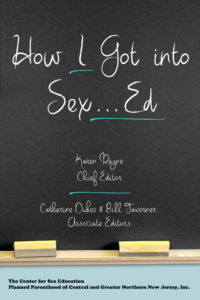
Want to read other great stories? Get a free copy of the ebook here. Order the print book here.
“How I Got Into Sex…Ed is a treasure! If you’ve ever wondered if this path was right for you or what it feels like to be a sex educator or how to get the right kinds of education, training, or opportunities to work as a sexuality education professional, this book is for you!”
Debby Herbenick, PhD, MPH
Director, The Center for Sexual Health Promotion
Indiana University


